The magazine in your hands traveled to you the same way it does most months. The process begins with our editors, then it goes to our printer, then the post office and finally to you. While this process is the same each month, it was more expensive for us to send this issue than it was last year. We’re experiencing higher costs for paper, ink, delivery and more.
The price to produce the magazine is just one example of how cost increases are impacting virtually everything — and, ultimately, your household budget.
Unfortunately, the generation of power has not been immune to higher costs, and co-op consumers in Tennessee should expect higher power bills this summer as the Tennessee Valley Authority’s Fuel Cost Adjustment continues to rise.
Your local electric cooperative purchases wholesale energy from TVA, and in 2006 TVA implemented a Fuel Cost Adjustment, or FCA, to manage changes in the costs of raw materials used for power generation. These fuels include the uranium, coal, oil and natural gas that TVA must purchase to run its power generation plants. Like all commodities, the prices of these fuels rise and fall, and the FCA is designed to protect ratepayers from permanent rate adjustments when fuel costs see temporary increases.
The FCA typically remains relatively steady, but in recent months, global supply chain issues and inflationary pressures have pushed the price of fuels, especially natural gas, to higher than normal levels.
What does this mean for you? Because TVA generates about 25 percent of its energy from natural gas, these cost increases will impact the FCA and your power bill. While the actual impact depends on the amount of energy you use, the higher TVA FCA will add about $12 to the average residential electric bill. The price of natural gas is forecast to remain up for several months, so you should anticipate higher monthly power bills into the fall.
It is important to note that your local cooperative has no control over the FCA. It is set by TVA, and all electric consumers in Tennessee pay it. Some co-ops show the FCA as a line item on your electric bill while others incorporate it into their regular rates. Even with the added cost of the FCA, Tennessee electric co-op residential electric rates remain well below the national average.
The rise in fuel costs is also coming at a time when summer temperatures are driving up our use of air conditioning. May 2022 was unseasonably warm, and by mid-June, we had already seen temperatures near or over 100 degrees.
There is some good news, though. The FCA is a small part of your overall electric bill. Your bill is the result of the cost of energy and the amount of energy you use. By controlling your use, you control your bill and your cost. You only pay for what you use.
The tips on the next page can help you limit your energy consumption this summer. Contact your local, consumer-owned electric co-op for more information on saving energy and money.
Tips to save energy and money
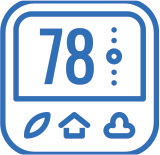
Use your thermostat wisely.
Set your thermostat to the highest comfortable temperature possible. Invest in a smart thermostat to automatically change the temperature based on your daily schedule.

Fans can increase comfort.
Fans are less expensive to run than your air conditioner, and they can do a lot to cool the room you are in. A ceiling fan will allow you to set your thermostat about 4 degrees higher with no reduction in comfort. Be sure to turn fans off when you leave the room.
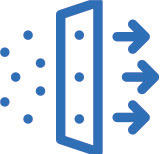
Replace your air filters.
Replacing air filters is one of the easiest and most cost-effective steps you can take to help your air conditioner run efficiently. Dirty filters make your air conditioner work harder and use more energy. High temperatures require your unit to run longer, so replace your filters more frequently in summer.
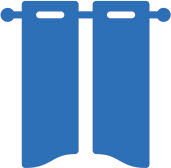
Use drapes and window coverings.
Close the curtains or blinds during the hottest times of the day, especially on south- and west-facing walls. This simple action can block out heat from the sun, keeping the temperature lower in your living space.
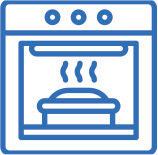
Minimize use of the oven.
Your conventional oven can introduce unwanted heat into your home, reducing your comfort and forcing your air conditioner to work harder. Use a microwave or slow cooker, or consider grilling outside.
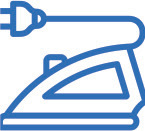
Consider the timing of chores.
Washing machines, clothes dryers, irons and dishwashers can add heat and moisture to your home. Limit these activities to early morning or evening hours.

Turn off the lights.
Make it a habit to turn off lights when you leave a room. If you have incandescent lightbulbs in your home, replace them with LED bulbs, which use a fraction of the energy that incandescent bulbs use and generate much less heat. This is an investment that will pay for itself in energy savings.



